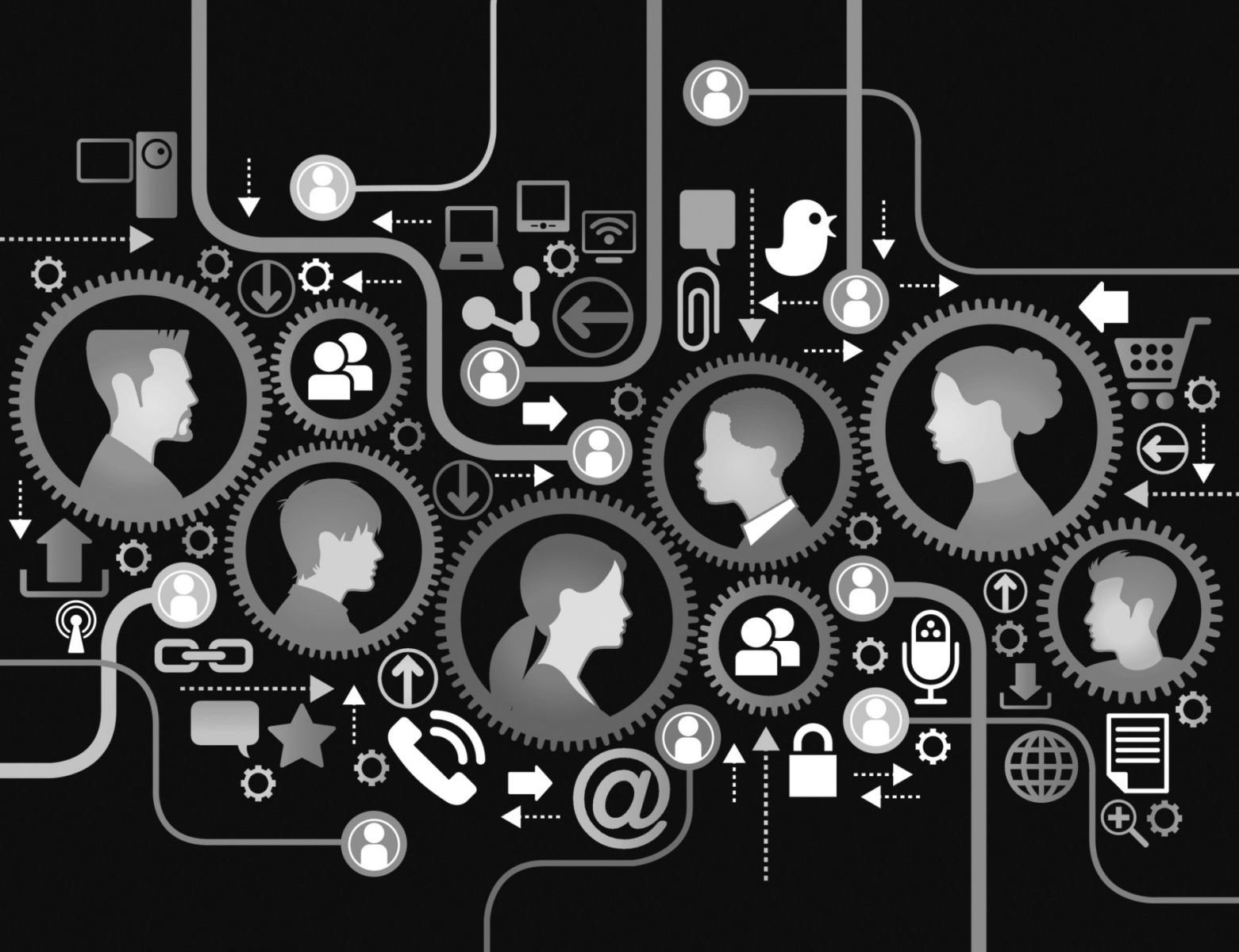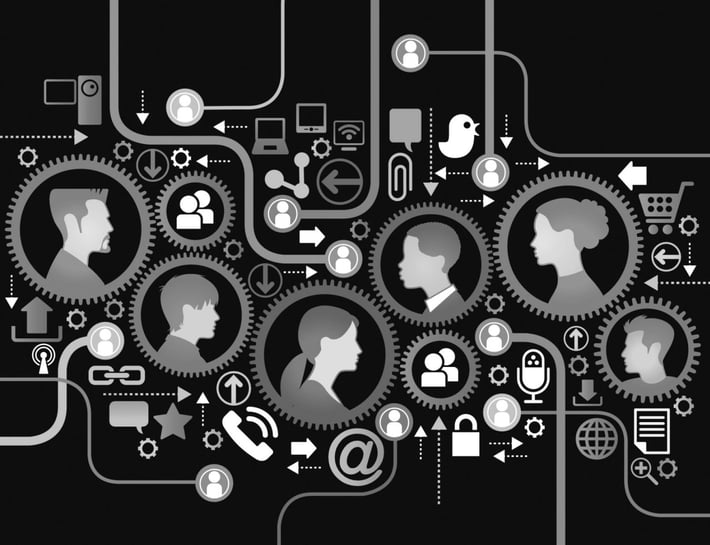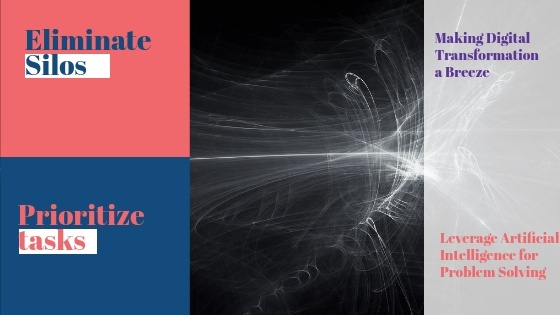Know the Difference between Artificial Intelligence and RPA
Artificial Intelligence and its subsets terms like Machine Learning, Automation, NLP etc. have gained tremendous attention in just a few years. What...
4 min read
Sales : Feb 22, 2018 12:00:00 AM


Artificial intelligence has become the buzzword in the business community. Though it’s not new to use software to reduce human effort, artificial intelligence has added whole new possibilities. The old school rule-based automation provides a limited scope of reducing human work. With the combination of artificial intelligence and automation, we can not just reduce human effort but also remove the need for intervention altogether. This combination of artificial intelligence in automation is popularly called automation continuum (or intelligent Robotic Process Automation).
An intelligent automation system functions using these three components of artificial intelligence. Depending upon the need, they can be combined or used to separately to create a fully automated solution:
Machine vision refers to the potential of a program to understand visual input. The machine uses the training data (images) as a base for a classification or identification mechanism. The best example of machine vision is the face recognition in the iPhone X. The Facebook Artificial Intelligence Research Program is also a good example as it analyzes images, identifies attributes and then classifies and explains the new visuals to the user.
Where machine vision works on the visuals, Natural Language Processing (NLP) does the same to understand human voice and text inputs. We come a long way in making NLP efficient. Now it is possible for machines to understand the context behind the communication and take actions based on the prebuilt data and contextual variables. Apple’s Siri, Google Assistant, and Amazon Alexa all rely on NLP to provide value to users.
Machine learning is the ability of the machine to learn from the data fed, outcomes of decisions and environment variables to improve itself. Using machine learning we can improve the efficiency of current solutions. For instance, if an issue comes under an intelligent automation system and human intervention comes into play to resolve it, the next time system will automatically follow the procedure used by a human. Hence over time, the efficiency will improve and human effort will reduce.
Read More: Apple changes the Game of Machine Learning with CoreML and VisionArtificial intelligence in automation can help in a wide range of functions. From self-driving cars to drones all are using intelligent automation. Here are some key ways a business can benefit from a combination of AI and robotic process automation:
We will finally be able to link a theft directly to the face of the person. A camera can be attached to the POS system to record all the transactions and link them directly to the face along with the details already in the system. In case someone uses fake currency or commits credit card fraud, it will be much easier to catch them. An intelligent system can also prevent cyber attacks by identifying abnormal behavior or requests from the user. In such a situation the system automatically stops taking any requests and sends an alert to the administrator.
Read More - Applications of AI and ML in Banking
Automation can make the task of brand management a breeze. Marketers continuously struggle to understand the consumer’s opinion about their brand. With automation, they can automate the analysis of all the content across the internet on a regular basis and identify critical issues. The Watson Analytics for Social Media is the perfect example of such automation in reality. The user can define a set of focus keywords, define the context and understand the opinion of users online in just a few minutes.
Read More: 8 Experts on the Future of Artificial Intelligence and Big Data
Chabots have become quite popular in a very short time. What started gaining popularity with Apple’s Siri is now a common battleground for brands. Chatbots are programs that understand user’s inputs contextually and respond to the queries. These can be used to automate customer service, sales, and marketing messages. Since bots can be deployed on already popular platforms like Facebook Messenger, Slack, Kik etc. it does create friction due to download process as in the case of apps. They feel very much human and can reduce the burden on customer help desks.
Read More: What makes a bot intelligent?
Automation in testing is a rapidly growing field. With a range of tools currently available, it is possible that the work of testing is almost completely automated in future. Some of the popular intelligent testing tools are Applitools, SauceLabs, Test.AI, ReTest etc. With these tools, developers can focus on core coding and leave the worries of bug fixing on intelligent systems. While development automation is a long way to go there are tools that can relieve developers from menial tasks. For instance, the Amazon Glue is a fully managed ETL engine that can handle the grueling working of typing the ETL script.
Read More: Top 11 Applications and Uses of AI and ML in BusinessRecruiters often struggle through sorting CVs, identifying potential candidates and managing old data. With automation, this work can be automated on a large scale. In fact, today, HR and recruiting managers already receive most of the resumes through some automated applicant tracking system. These solutions upload job application materials to their database when users apply for a role. HR/recruiting professionals can then receive information in the form of packets that can be organized and managed through various options. (Read More on AI in Human Resource Management)
Read More: Difference between AI, ML and Data Science
The use of artificial intelligence in automation makes it a lot easier for businesses to execute routine operations and scale fast. Here are some reasons why using this approach is beneficial:
The cost of training a human in a task of routine nature is of recurring nature. You’ll need to deal with employee turnover, give time for skill development and incur vocational costs. On the other hand, a machine once trained only improves over time and has no cost involved in repeat training.
No matter how efficient people are they will always make mistakes. An automation solution is much more foolproof and it leaves little (or no) of errors. With time it learns from the outputs hance also improves its efficiency.
Just like computer brought a whole new type of jobs so will artificial intelligence. People with exceptional skills will find themselves training low-level automation systems to do most of their work.
Read More: Major Sectors to Benefit from RPA
We at NewGenApps have done many projects in this space. In fact, we have our own RPA system in-house. If you are looking for developers to craft an intelligent solution for your business then get in touch today.

Artificial Intelligence and its subsets terms like Machine Learning, Automation, NLP etc. have gained tremendous attention in just a few years. What...

Business today are struggling to keep pace with the rapidly evolving technology, voluminous data, customer demands, process inefficiencies and a lot...